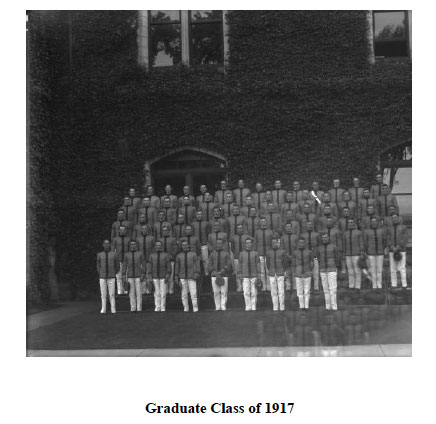
The three Doherty survivors were rescued by one of Carpathia’s lifeboats and the crew rowed them to the side of the ship where they were winched up to one of the decks. There were many crew and passengers there to assist them once on board. They were given blankets and taken to a row of deck chairs. This is where they would sleep on the voyage to New York.
Carpathia took three days to reach New York after leaving the scene of the disaster. Pack ice, fog, thunderstorms and rough seas hampered her journey. The ship’s Captain, Arthur Rostron, authorised the radio room to pass news on to the outside world via wireless regarding what had happened. The initial reports were confused, leading the American press to report erroneously on 15th April ‘that the SS Virginian was towing Titanic to port’. Later that day, confirmation came through that Titanic had been lost and that most of her passengers and crew had died. The news attracted crowds of people to the White Star Line’s offices in London, New York, Southampton and Belfast. The news hit hardest in Southampton, where people suffered the greatest losses from the sinking. Four out of five crewmembers came from this town. Carpathia docked at 9.30 pm on 18th April at New York’s Pier 54 and was greeted by some forty thousand people waiting at the quayside in heavy rain. The Women’s Relief Committee, the Travellers’ Aid Society of New York, and the Council of Jewish Women, plus various other organisations provided immediate relief in the form of clothing and transportation to shelters. Many of Titanic’s surviving passengers did not linger in New York but headed onwards immediately to relatives’ homes. Some of the wealthier survivors chartered private trains to take them home, and the Pennsylvania Railroad laid on a special train free of charge to take survivors to Philadelphia. Titanic’s two hundred and four surviving crewmembers were taken to the Red Star Line’s steamer SS Lapland, where they were accommodated in passenger cabins.
Lucy and the children were fortunate to have her mother and father greet them as they lived close by in New Jersey. For the first time in what seemed an eternity they all slept in clean sheets and warm dry blankets. The most memorable moment was having a hot bath. Their grief and sorrow coming from losing their father and husband would take a long time to subside.
Lucy and the children stayed in New Jersey for a few weeks and although grateful for the kindness and hospitality they all felt it was time to move back to Chesapeake and try and get on with their lives.
John and Jennifer Broderick drove the family to the train station kissed their daughter and grandchildren goodbye, promising to visit them later in the year.
When Lucy and the children first unlocked and entered the family home they all began to cry. How could they live in this house without Joe? He was the patriarch, the advisor, the joker and the one that encouraged his children to always strive to do their best.
Lucy knew it was going to be very difficult but they had no other choice than to move on and live their lives as best they could.
Jack and Julie returned to school and soon fitted into the routine. Jack ambitiously tried to teach his class how to play cricket, however he failed to convince them that this strange game should ever replace baseball.
The years rolled by and life went on without Joe. Lucy received great support from Gene Leutze, Joe’s commanding officer. Support became love and three years after Joe was lost the couple got married. It was a good match. Lucy enjoyed the life of an Admiral’s wife in Washington, being invited to the White House and meeting the President and First Lady. Gene loved having Lucy by his side on these occasions – she was the ultimate socialite.
Jack had thought long and hard about joining the Navy but had trouble coming to grips with the way his father died. He had developed a real fear of drowning at sea – not what he needed to become a career naval officer. Ultimately he decided a career in the armed services would be his chosen path and he enrolled at West Point.

Julie had decided to pursue a career in medicine. She enrolled at Temple University School of Medicine in Pennsylvania in 1914, graduating in 1918.
Jack revelled in the academy lifestyle and excelled in all his classes apart from mathematics. Lucy and Gene employed a maths tutor and with a lot of tuition and hard work he passed his final maths exam. His real interest lay in battle tactics and foreign languages and he became fluent in French and German.
The two siblings had no real idea what awaited them in the very near future. Events in Europe were about to change their plans and aspirations forever.